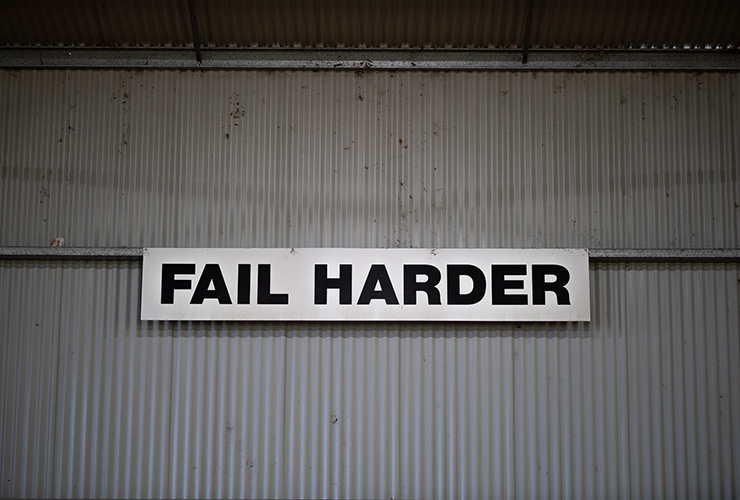
Learning to reframe how you see your ‘failures’ will open up avenues of success that you imagined were only possible for others
—
What is failure and why do we want to avoid it at all costs?
The definition of failure is: “The omission of an expected or required action.” We avoid failure because we associate it with shame, discomfort, and even more importantly, we associate it with what we think it says about us — that we are not good enough, smart enough, capable enough….
What many of us do to avoid failure is we just stop expecting and trying, a surefire way to never fail, but also to never succeed.
We stay within our comfort zone as we keep recycling the same life. But what happens when you stop putting yourself out there for fear of failing is that you end up not feeling alive anymore.
Many of my clients who find themselves in this predicament tell me that they are tired of being hurt and feeling fragile. They say they can’t find a romantic partner, a job they love, or achieve their weight loss goals. They feel disillusioned by life and then try to escape their feelings by engaging in the unhealthy behaviors they want to avoid in the first place, a vicious cycle which ultimately reinforces their belief that nothing will ever change for them.
Research scientists have found that we tend to overestimate the length or intensity of major events in our lives (both positive or negative) which leads us to majorly overestimate the effect and intensity of failure. A potentially negative outcome makes us a lot less likely to take risks to pursue dreams where the outcome is uncertain.
A favorite quote reminds me of a basic truth: “No comfort in the learning zone, no learning in the comfort zone.”
I teach my clients that we are the ones who decide both what failure means to us and how we will feel when it happens. By that I mean that when you set out to do something, and you have an expectation of the result that doesn’t play out as you thought, YOU still get to decide what that ‘failure’ signifies.
If you decide it means that you are not smart enough, you will experience a negative emotion. Conversely, if you decide to see this as a learning experience to grow and improve the next time, then you will experience a positive feeling which doesn’t make you want to avoid failure and might even make you look forward to it.
You have full control of which mindset you choose.
To choose the positive option, set yourself up for success by telling yourself: “I’m going to go out there and try to do this new thing. There is a chance that I’m not going to meet my expectation. I’m going to fail, and possibly more than once. When I fail, I’m going to have my own back. I’m going to treat myself with respect. I’m going to use that as an opportunity to learn. I will refuse to say mean things to myself, to beat myself up, or to quit.”
Another favorite quote says, “If you want success, you need to double your rate of failure.”
Imagine if a baby learning how to walk stopped trying because he or she kept falling and ‘failing’? But by seeing this process as an opportunity to learn, they allow themselves to get strong enough to walk on their own.
As adults, allow yourself the grace to not be perfect the first time you try something new. Give yourself permission to start, to be messy, and to make progress at your own rate. As you do so, remember that self-doubt kills more dreams than failure ever will.
You may also enjoy reading Against All Odds: A Story of Triumph, Perseverance, Healing and Service, by Shawn Wells